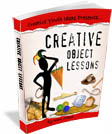This youth activity uses a relay race with Candy Bars in various colored wrappers to present the Gospel. You can find lots of mini candy bars around the Halloween season. Similar to the wordless bracelet, the colors yellow, black, red, white and Green are used to explain the gospel message.
PLEASE SHARE THIS IDEA ON FACEBOOK
What You Need
Mini Candy bars with the following colored wrappers:
Yellow, Back, Red, White, Green
Here are some examples
- Yellow – Butterfinger, Mr Goodbar, Peanut M&Ms, Milk Duds, Oh Henry
- Black/ Dark Brown – Mars Bars, Hersheys, Skore, Snickers, Milky Way, M&Ms
- Red – Kit Kat, 100 Grand, Take 5
- White – Cookies N Creme, Zero, White Kit Kat, Toblerone (White)
- Green – Milo, York’s Mint, Aero, After 8, Andes, Mint M&Ms
Variation: Instead of Candy Bars, use Red, Green, Brown, and Yellow M&Ms along with white Menthos. If you can’t find those simply use any candy in the correct colors.
Preparation
- Form two teams and assign each team one or two colors of candy bars. You can have as many teams as you have different colored candy bar wrappers.
- On the floor at one end of the room, unroll a several foot long strip of paper towels.
- Spread the candy bars randomly over the entire length of paper towels
- Have the teams line up at the other end of the room.
What to do
- One at a time, team members rush to the paper towels, and bend down and use their teeth to pick up one candy bar (Team colors only and no hands allowed).
- Once they have a candy bar in their teeth, they stand back up, run back to their team.
- They must then show the candy bar to the next person in line, who shouts out the color.
- If the color’s wrong – i.e. “Trick”, the person must eat the candy bar and then go back and get another candy bar of the correct color.
- When the color is correct “Treat”, the person eats his/her candy bar and the next person goes to the paper towels and repeats the process.
- The first team to remove all the candy bars of their assigned color wins.
TAKE IT TO THE NEXT LEVEL
Explanation of the Gospel using the various colored Candy bars
Candy Bar in a Yellow Wrapper
The yellow wrapper reminds us of Heaven. Do you know what Heaven is? Heaven is God’s home. Heaven is filled with the glory, the shining brightness of God. There is no night there. The Bible says, “God is The Light and in Him is no Darkness at all”(1 John 1:5). The Bible tells us that in Heaven, the street of the city is pure, clear gold-like glass (Rev 21:21). God tells us many other things about His home. No one is sick there. No one is crippled or blind. No one ever dies. Every person in Heaven will be perfectly happyalways (Rev 21:4-2; Psalm 16:11). The most wonderful thing about Heaven is that God the Father and His Son, the Lord Jesus will be there. God made Heaven. He made you too. He loves you very much. Because he made you and loves you, He wants you to belong to Him and be with Him in Heaven someday. Jesus promised long ago, “I go to prepare a place for you” (John 3:16; John 14:1-3).
Candy Bar in a Black Wrapper
There is one thing that can never be in Heaven. That is sin. Because you and I are sinners we want to have our own way instead of God’s way. Wanting our own way is sin. Doing, or saying, or thinking bad things is sin. Sin is anything that displeases God. Sin has caused sorrow and sadness in our world. God tells us in the Bible that all have sinned (Romans 3:23). All means every one of us. This dark wrapper reminds us of our sinful way (Proverbs 4:19). When it is dark, you stumble and cannot find your way. When something is dirty it usually has dark smudges. Because of your sin, you cannot find God. Your sin separates you from God, who is holy (1 John 1:5). God cannot allow sin where He is. I am sure you can think of a sin which you have done. God has said that sin must be punished. The punishment for your sin is death-to be separated from God forever (Rev 6:23). The Lord Jesus, God’s Son, said that if you die in your sin, you cannot go to Heaven where He is (John 8:21, 24). God knew there was nothing you could do to get rid of your sin. He knew you could not be good enough to please Him. But He loves you and He made a way for you to be forgiven.
Candy Bar in a Red Wrapper
The red candy bar wrapper shows the way God made for you to have your sins forgiven-taken away. God loves you. He sent His own Son, the Lord Jesus Christ, from Heaven to take the punishment for your sin (John 3:16). Wicked men nailed the sinless Son of God to the cross, but while He hung there God put all of your sins on Him. The Bible says, “…God bath laid on Him [Jesus] the iniquity of us all” (Isaiah 53:6). (Iniquity is another word for sin). All your bad temper, all your lies, your meaness-all your sin-was laid on the dear Son of God, and He suffered and suffered until He cried out with a loud voice and said, “It is finished.” When you finish a job, how much is left? Nothing. What did the Lord Jesus come to do? He came to save us from punishment for sin, didn’t He? And He finished the work. When He was nailed to the cross, what came from His hands, and His feet? His blood. God calls it the precious blood of Jesus Christ, and He says “…the blood of Jesus Christ, God’s Son, cleanseth us from all sin” (I John 1:7). There is no other way, for God says, “Without shedding of blood there is no remission [of sin]”-no forgiveness, no payment (Hebrews 9:22). Jesus not only died for you, but He was buried, and He rose again. He is a living savior (1 Corinthians 15:3, 4). God showed His love for you by sending His own Son to die for you. Now he says there is one way for you to be saved from your sin.
Candy Bar in a White Wrapper
Tears cannot wash away sin. Prayers cannot wash away sin. Doing good cannot wash away sin. But the blood of the Lord Jesus can wash away all sin (Psalm 51:7; 1 John 1:7). This white wrapper reminds me that you can be made clean from sin. Did Jesus die for everyone? (YES!) Is everyone going to Heaven? (No, because some do not believe that Jesus died for them. They have not received Him as their savior from sin.) God’s word says, “…as many as received Him to them gave He power to become the sons of God, even to them that believe on His Name” (John 1:12). God has promised you when you receive the Lord Jesus as your Savior, you become a child of God.
Candy Bar in a Green Wrapper
The green wrapper reminds me of the new life, everlasting life, you have received from God. The color green reminds me of things which are growing outdoors, like leaves, grass, flowers, and trees. when you receive the Lord Jesus as your savior from sin, you are like a newborn baby in God’s family. The Bible tells you to “grow in grace in the knowledge of our Lord and Savior Jesus Christ” (2 Peter 3:18).
(As the time permits, talk with the youth about those things which help him
grow as a member of God’s family. Explain you are not talking about growing
taller or gaining weight from eating all this candy, but the kind of growing which will help others know that he loves the Lord Jesus.
- Listen to God- Learn God’s Word reading and memorizing it (2 Timothy 2:15; Psalm 119: 11).
- Talk to God. Pray (1 Thessalonians 5:17).
- Talk for God. Witness or tell others (Mark 16:15).
- Worship God. Go to Sunday School and Church (Hebrews 10:25).
ADAPTED FROM
 Creative Holiday Ideas
Creative Holiday IdeasGames and Activities in Celebration of common Holidays.
Creative Holiday Ideas has over 300 pages of ideas to help you plan not only your next Fall Festival or Halloween Alternative event, but also most of the other common holidays. If you’ve ever wondered what you’re going to do for the holidays and how you’re going to do it, this resource is for you.
=> Tell me more about the Holiday Collection
 NEED MORE IDEAS? See “Creative Object Lessons”
NEED MORE IDEAS? See “Creative Object Lessons”
200 page e-book that explains everything you need to know when planning your very own object lessons. It contains 90 fully developed object lesson ideas and another 200 object lesson starter ideas based on Biblical idioms and Names / Descriptions of God.
![]()

